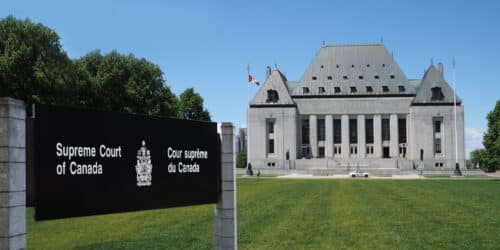At the start of the New Year many people reflect on their goals and what makes them happy. For some, that might include reconsidering a relationship.
If you are married or common law, or if you have children together, and have decided to separate from your partner, you should consider speaking with a family law lawyer about your options.
When preparing to speak to a lawyer about your separation, the following is a list of initial information your lawyer will ask for:
- Are you married and, if so, how long have you been married? Did you have a period of cohabitation prior to marriage and, if so, for how long?
- Are you considered common law and, if so, for how long? Note that common law spouses are two people who have lived together continuously in a conjugal relationship for at least three years. Alternatively, if two people have a child together, they are considered common law if they have cohabited in a relationship of some permanence.
- On what day did you begin living separate and apart, if you have already? The language of living “separate and apart” is used at law to determine when a couple is legally separated. This could look like both or one spouse moving out of their shared home, or, two people still living in the same house but not as a couple. For example, no longer sharing a room or finances.
- Do you have any children? It is helpful to have information about your children, including their ages, schools, activities, and any special needs. You should also consider what you envision as a parenting plan. A parenting plan is a written document that sets out the agreement between parents for how to raise their kids following a separation. Decisions on parenting time and decision-making for kids are always made from the lens of what is in the best interests of the child.
- What is the dynamic with your ex-spouse now? What has communication been like since the separation? Do you think you and your ex-partner are aligned on these issues?
- What assets do you and your ex-partner hold jointly, including a home, car, bank accounts, investments, etc.?
- What assets do you hold in your own name?
- What assets did you own prior to the relationship and what assets did you buy while in the relationship? These questions on assets are especially relevant to divorcing couples because each spouse is entitled to their share of the wealth accumulated during the marriage, subject to some important exceptions. This is done through a process called the equalization of Net Family Property.
- If you and your spouse are currently residing in the matrimonial home, have there been any discussions about what to do with the property? Will one or both of you continue to live in the home pending the divorce and resolution of other issues, including division of property and parenting time/ decision making responsibility for any children of the marriage?
- Have you received an inheritance during the marriage? If so, you should discuss with your lawyer whether it can be excluded from an equalization calculation of Net Family Property.
- Do you have a Will, a Power of Attorney for Property, or a Power of Attorney for Personal Care, that includes your ex-partner?
- Is your partner the beneficiary of any financial instruments or policies?
- What is your income and that of your spouse? It is helpful to have information about your respective salaries and employment.
- Do either or both of you own a business? If so, how have you each contributed to the business?
You will first have an intake meeting with a lawyer where the goal is to understand your legal issues and get any information to ensure there are no conflicts of interest in taking on your matter. If after this initial meeting you would like to work together, you will discuss the questions above in further depth and be able to work through your separation with your lawyer.
The process of separation is undoubtedly daunting and influenced by many personal factors. Having answers to some of these questions is helpful for exploring your options and having a head start when meeting with a lawyer.
This blog post was written by Articling Student Meghan Boyer and Partner Kate Wright, a member of the Family Law, Wills and Estates and Estate Litigation teams. Kate can be reached at 613-369-0383 or at kate.wright@mannlawyers.com.









